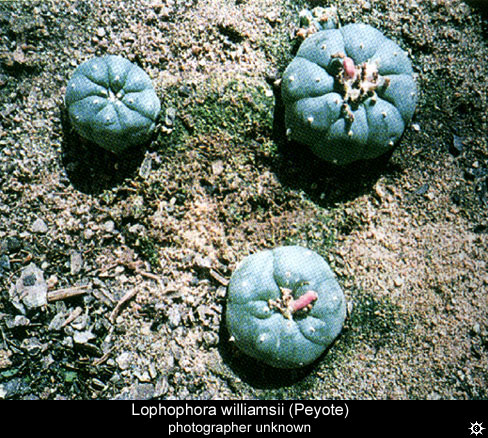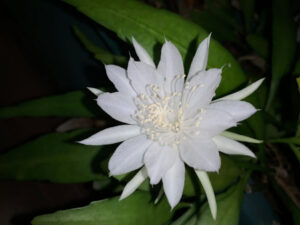Peyote, a cactus renowned for its psychoactive properties, has garnered attention not only for its cultural significance but also for the complex legal framework that surrounds its purchase and use. Understanding these intricacies is essential for enthusiasts and researchers alike. This article will delve into the legality and availability of peyote cactus, encompassing various dimensions including historical contexts, current laws, and regulations governing its use and distribution.
The Cultural Significance of Peyote
To comprehend the legality of peyote, one must first appreciate its rich historical and cultural roots. Indigenous peoples, particularly in North America, have used peyote (Lophophora williamsii) for millennia in spiritual ceremonies. The psychoactive compound mescaline, found in peyote, is central to transcendent experiences and visions sought during these rituals. As a sacramental element, peyote is integral to the religious practices of various tribes, including the Native American Church, which advocates for the decriminalization of its use for religious purposes.
This deep-seated cultural significance has influenced the legal landscape surrounding peyote. For many indigenous communities, the cactus is not merely a plant; it is a sacred entity that connects them to their spirituality and ancestral heritage. This perspective has resulted in a patchwork of laws that both protect and regulate its use, making the question of legality multifaceted.
Legal Framework: The Federal Perspective
In the United States, the legal status of peyote is largely dictated by the Controlled Substances Act of 1970, which categorizes substances into various schedules based on their potential for abuse and accepted medical use. Peyote is classified as a Schedule I substance, alongside heroin and LSD. This classification inherently prohibits its recreational use and general distribution.
However, an important exception exists, particularly for members of federally recognized tribes. The American Indian Religious Freedom Act Amendments of 1994 allows for the legal use of peyote in religious ceremonies conducted by recognized tribes. This provision highlights a unique intersection of law, cultural identity, and spirituality, providing a defensive framework for indigenous practices involving peyote.
In states where these tribes are prevalent, the ability to buy peyote legally is often restricted to tribal members, reinforcing the notion of peyote as a sacred entity reserved for ceremonial use. This creates a situation where peyote is not freely available to the general public, underscoring the complexities surrounding its legality.
The State-Level Legalities: Divergent Paths
The legality of peyote also varies significantly from state to state. Some states may impose additional restrictions on the use, sale, and transportation of peyote beyond federal laws. For instance, certain states explicitly prohibit the cultivation of peyote, while others may allow it under stringent regulations. Understanding the specific laws applicable in various jurisdictions is paramount for anyone considering the acquisition or use of peyote.
In states with a considerable Native American population, such as Arizona and New Mexico, there are legal protections in place for peyote use within religious contexts. Conversely, states with less interaction with indigenous cultures may have stricter interpretations of peyote regulations. Hence, potential buyers must navigate this legal labyrinth to gain clarity on the issues at hand.
Availability: Where Can You Find Peyote?
While the question of legality addresses whether one can purchase peyote, the practical aspect of availability cannot be overlooked. Peyote is not typically found in garden centers or commercial nurseries. Its slow growth cycle, taking several years to mature enough for harvesting, adds to its scarcity. Furthermore, ethical considerations dictate that wild harvesting of peyote is frowned upon and may be illegal in many jurisdictions due to conservation concerns.
For those seeking to grow peyote for personal or ceremonial use, obtaining seeds or seedlings from reputable sources is essential. It is often advised to buy from licensed nurseries that specialize in cacti and succulents, as unsourced and wild-harvested specimens pose ecological risks as well as legal complications. Additionally, the cultivation of peyote should be approached with a profound respect for its cultural and spiritual significance.
Experiences and Uses: The Sacred Journey
The psychoactive experience associated with consuming peyote is distinct and profound, often described as a journey into self-awareness and spiritual insight. For many users, the experience fosters a connection with nature and the universe, revealing truths hidden from ordinary perception. The mescaline in peyote acts as a powerful hallucinogen, inducing altered states of consciousness, and these experiences are traditionally framed within the context of ceremonial settings led by knowledgeable spiritual guides.
Utilizing peyote requires a deep understanding of its effects and appropriate dosages, as the experience can vary dramatically based on individual psychology and environmental factors. Misuse of peyote, particularly in non-ceremonial contexts, can lead to adverse psychological effects, emphasizing the importance of responsible use based on cultural traditions.
Conclusion: Navigating the Terrain
The question of whether one can buy peyote is not merely a yes or no proposition but an intricate tapestry woven from historical, cultural, and legal threads. While peyote remains largely unavailable to the general public due to its classification and legal restrictions, for indigenous communities, it symbolizes an enduring spiritual connection that transcends the boundaries of law.
As interest in entheogens continues to rise, the conversation surrounding peyote’s legality and availability is poised to evolve. Awareness of the cultural significance and legal responsibilities attached to peyote use is vital for fostering dialogue and understanding. Those who seek to cultivate, use, or purchase peyote must do so with respect, conscientiousness, and recognition of the cultural heritage it embodies.




Leave a Comment